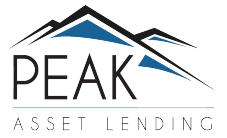In the evolving landscape of real estate investment, investors are continuously seeking financing options that align with their unique needs and objectives. One such option that has become increasingly popular is known as the Debt Service Coverage Ratio (DSCR) loan.
At its core, this loan type uses a financial metric (DSCR) to assess an investment property’s ability to generate enough net income to cover the loan debt service obligations, such as interest and principal to successfully service the loan.
So how exactly does that work, anyway?
DSCR: A New Way to Finance
Unlike traditional loans that often rely heavily on the borrower’s income, DSCR loans assess the cash flow of the investment property itself. This makes them particularly attractive to investors with strong, income-generating properties but less conventional financial profiles.
How DSCR Loans Work
The fundamental principle behind DSCR loans is simple: they evaluate whether a property’s net operating income (NOI) is enough to cover its debt payments. The Debt Service Coverage Ratio is calculated by dividing the property’s NOI by its total debt service.
For example, if a property generates $120,000 in NOI and has annual debt obligations of $100,000, the DSCR would be 1.2. This ratio indicates that the property generates 20% more income than needed to cover its debt.
Typically, lenders prefer a DSCR ratio above 1.0, which means the property is generating enough income to meet its debt obligations. A ratio below 1.0 suggests the property’s income is insufficient to cover its debts, indicating a higher risk for the lender and the need to evaluate the borrower’s ability to supplement the cash flow of the investment.
Why DSCR Loans Are Gaining Popularity
Flexibility in Qualification: DSCR loans offer greater flexibility in qualification compared to traditional loans. Investors can present investment properties with strong cash flow and avoid in-depth dives into their financials, making it easier to secure financing.
Focus on Property Performance: By focusing on the property’s income potential rather than the borrower’s overall financial profile, DSCR loans align with the investor’s objective of leveraging property performance for financing.
Streamlined Approval Process: Since the property’s cash flow is the primary criterion, the approval process can be more streamlined, reducing the need for extensive personal documentation and financial scrutiny.
Opportunity for Diverse Investments: Investors looking to diversify their portfolios with different types of properties—such as multifamily units, commercial real estate, or vacation rentals—can benefit from DSCR loans, as these properties often have varied income streams and risk profiles.
Peak Is Now Offering DSCR Loans
At Peak Asset Lending, we recognize that every investor’s journey is unique. Our DSCR loan products are designed to empower you with the financial flexibility you need to capitalize on investment opportunities. Here’s how we stand out:
- Tailored Solutions: Our team works closely with you to understand your investment goals and provide customized DSCR loan solutions that fit your needs.
- Expert Guidance: With our deep industry knowledge and expertise, we guide you through the process, ensuring you fully understand your financing options.
- Efficient Processing: We streamline the loan application and approval process, making it easier for you to secure financing and focus on growing your investment portfolio.
Is a DSCR Loan Right for You?
If you’re an investor with income-producing properties and seek a financing option that emphasizes property performance, a DSCR loan could be an ideal choice. At Peak Asset Lending, we’re here to help you navigate this financing avenue and achieve your investment goals with confidence.
To learn more about how DSCR loans can fit into your investment strategy, Contact Peak Asset Lending Today. Our team of experts is ready to provide you with the insights and support you need to make informed financial decisions.


Recent Comments